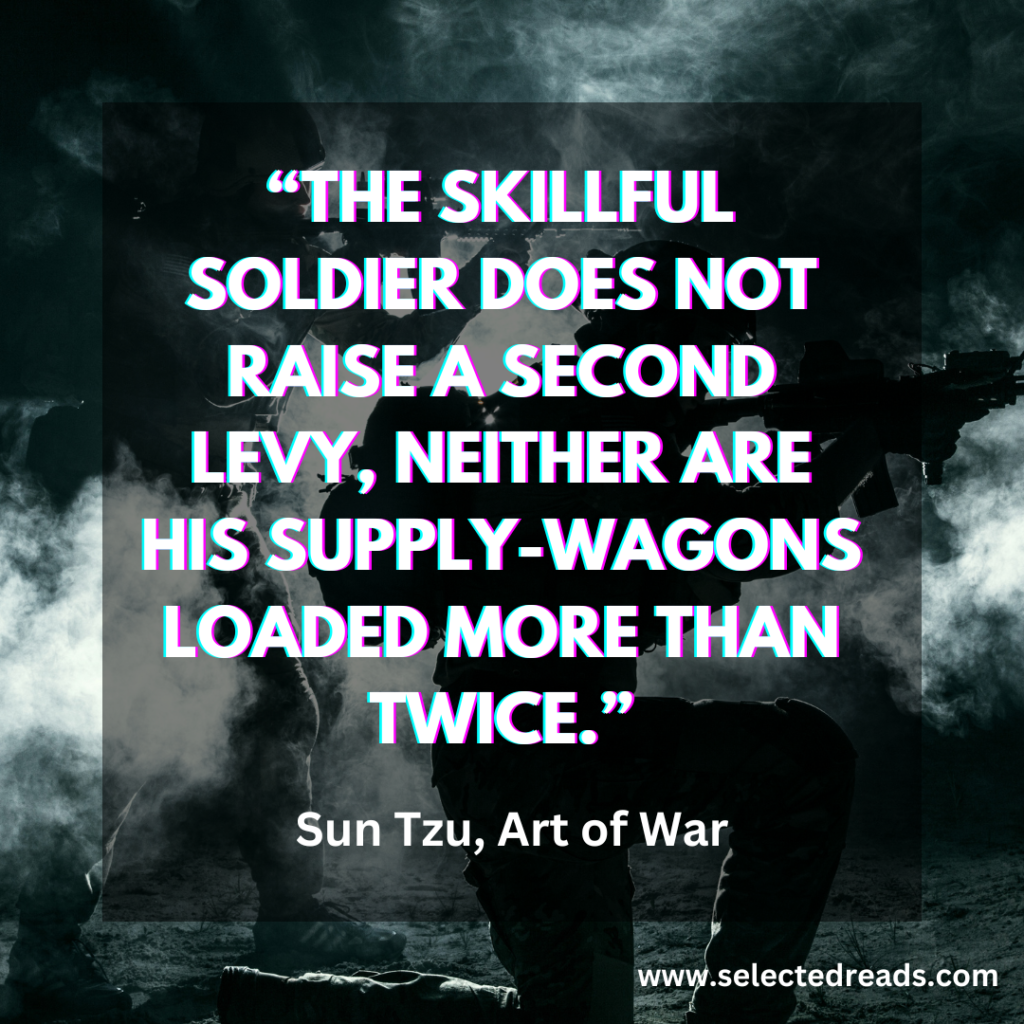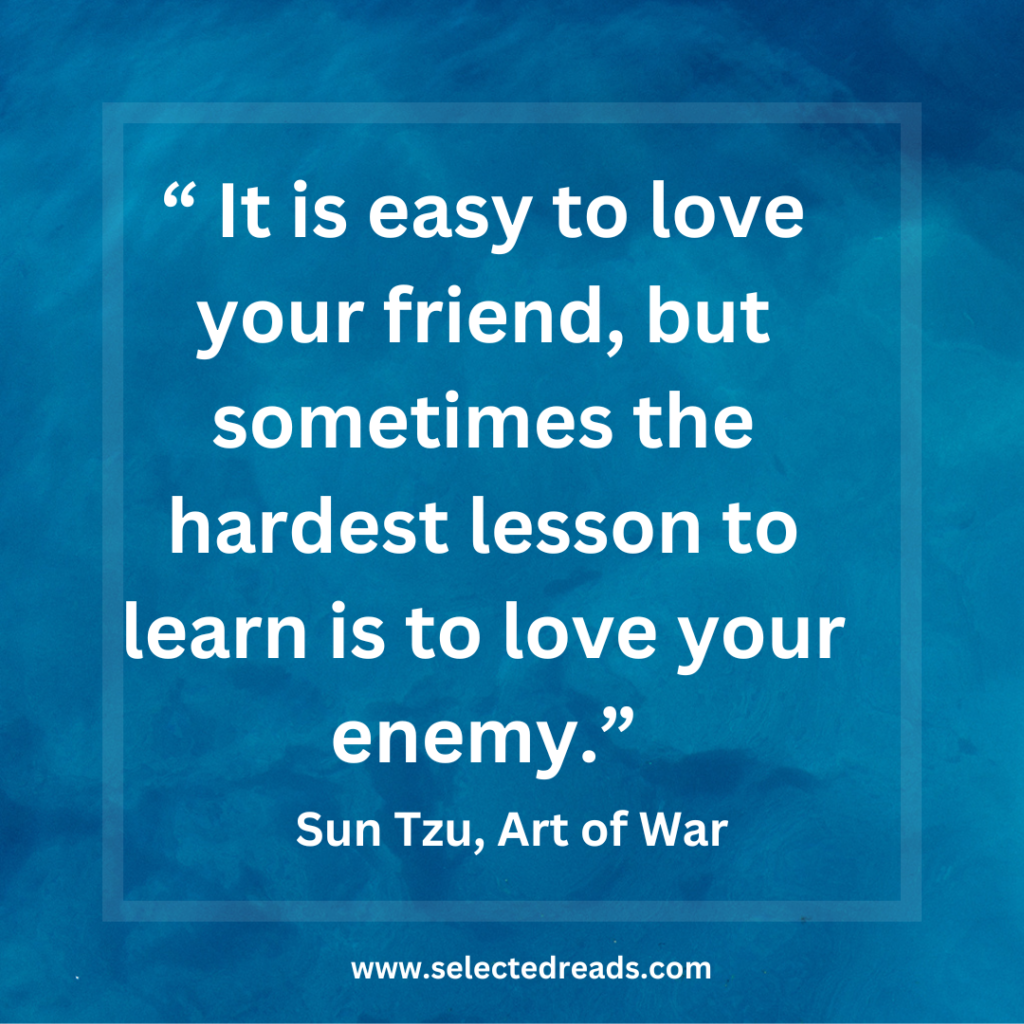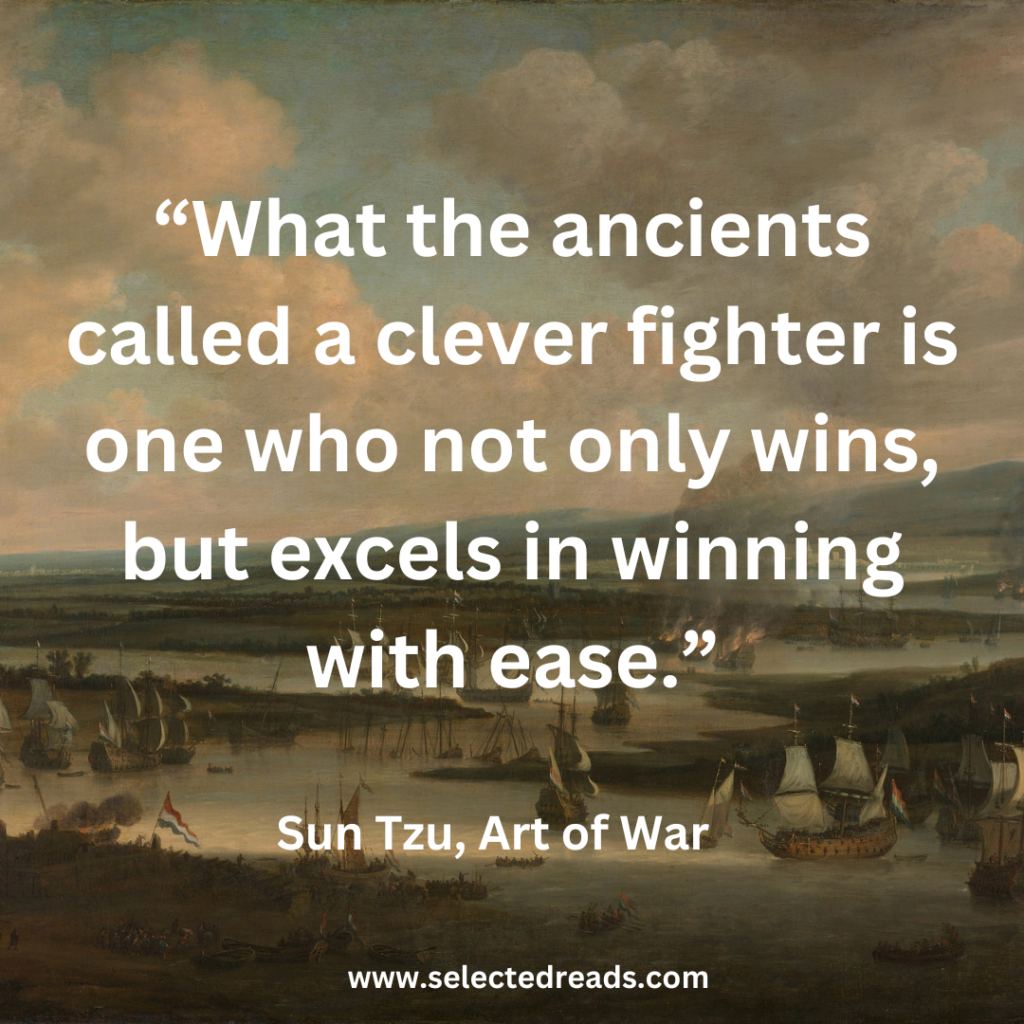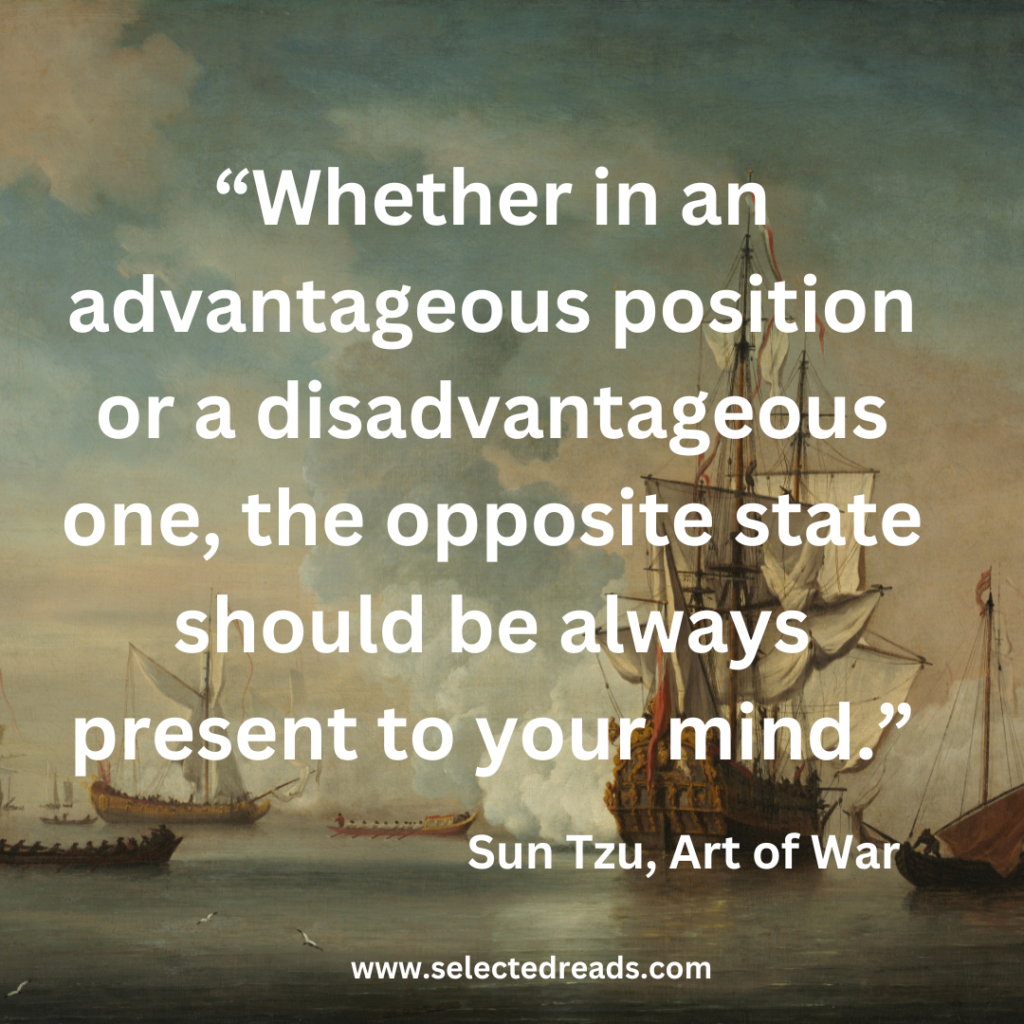Art of War, written by the Chinese military strategist Sun Tzu more than 2,500 years ago, is not just a book on military tactics, but also a timeless guide to strategy and leadership in all aspects of life.
Its influence has been felt not only in the military realm but also in business, politics, sports, and other areas where competition and conflict are present. One of the reasons for its enduring popularity is its insightful and practical quotes that offer valuable lessons for anyone seeking to succeed in life.
In this blog post, we will explore some of the most famous and insightful Art of War quotes and their relevance to modern life. Whether you are a student, a professional, an entrepreneur, or anyone seeking to improve their strategic thinking and decision-making, you are sure to find inspiration and wisdom in these timeless words of Sun Tzu.
“The wise warrior avoids the battle.” —Sun Tzu, Art of War
“All warfare is based on deception.”—Sun Tzu, Art of War
“The skillful soldier does not raise a second levy, neither are his supply-wagons loaded more than twice.”—Sun Tzu, Art of War
“Do not repeat the tactics which have gained you one victory, but let your methods be regulated by the infinite variety of circumstances.”—Sun Tzu, Art of War
“The supreme art of war is to subdue the enemy without fighting.”—Sun Tzu, Art of War
“Victorious warriors win first and then go to war, while defeated warriors go to war first and then seek to win.”—Sun Tzu, Art of War
“We cannot enter into alliances until we are acquainted with the designs of our neighbors.”—Sun Tzu, Art of War
“What the ancients called a clever fighter is one who not only wins, but excels in winning with ease.”—Sun Tzu, Art of War
“Treat your men as you would your own beloved sons. And they will follow you into the deepest valley.”—Sun Tzu, Art of War
“If your opponent is of choleric temper, seek to irritate him. Pretend to be weak, that he may grow arrogant.”—Sun Tzu, Art of War
“It is easy to love your friend, but sometimes the hardest lesson to learn is to love your enemy.”—Sun Tzu, Art of War
“Success in warfare is gained by carefully accommodating ourselves to the enemy’s purpose.”—Sun Tzu, Art of War
“If the enemy leaves a door open, you must rush in.”—Sun Tzu, Art of War
“The experienced soldier, once in motion, is never bewildered; once he has broken camp, he is never at a loss.”—Sun Tzu, Art of War
“There is no instance of a nation benefitting from prolonged warfare.”—Sun Tzu, Art of War
“If you know the enemy and know yourself, your victory will not stand in doubt.”—Sun Tzu, Art of War—Sun Tzu, Art of War
“Whoever is first in the field and awaits the coming of the enemy, will be fresh for the fight; whoever is second in the field and has to hasten to battle will arrive exhausted.”—Sun Tzu, Art of War
“Move not unless you see an advantage; use not your troops unless there is something to be gained; fight not unless the position is critical.”—Sun Tzu, Art of War
“Numerical weakness comes from having to prepare against possible attacks; numerical strength, from compelling our adversary to make these preparations against us.”—Sun Tzu, Art of War
“He who can modify his tactics in relation to his opponent and thereby succeed in winning, may be called a heaven-born captain.”—Sun Tzu, Art of War
“You can be sure of succeeding in your attacks if you only attack places which are undefended.”—Sun Tzu, Art of War
“Be extremely subtle even to the point of formlessness. Be extremely mysterious even to the point of soundlessness. Thereby you can be the director of the opponent’s fate.”—Sun Tzu, Art of War
“When the enemy is relaxed, make them toil. When full, starve them. When settled, make them move.”—Sun Tzu, Art of War
“who wishes to fight must first count the cost”—Sun Tzu, Art of War
“If your opponent is of choleric temper, seek to irritate him. Pretend to be weak, that he may grow arrogant.”—Sun Tzu, Art of War
“No ruler should put troops into the field merely to gratify his own spleen; no general should fight a battle simply out of pique.”—Sun Tzu, Art of War
“To win one hundred victories in one hundred battles is not the acme of skill. To subdue the enemy without fighting is the acme of skill.”—Sun Tzu, Art of War
“Attack is the secret of defense; defense is the planning of an attack.”—Sun Tzu, Art of War
“If he sends reinforcements everywhere, he will everywhere be weak.”—Sun Tzu, Art of War
“What the ancients called a clever fighter is one who not only wins, but excels in winning with ease.”—Sun Tzu, Art of War
“Conform to the enemy’s tactics until a favorable opportunity offers; then come forth and engage in a battle that shall prove decisive.”—Sun Tzu, Art of War
“Deep knowledge is to be aware of disturbance before disturbance, to be aware of danger before danger, to be aware of destruction before destruction, to be aware of calamity before calamity. Strong action is training the body without being burdened by the body, exercising the mind without being used by the mind, working in the world without being affected by the world, carrying out tasks without being obstructed by tasks.”—Sun Tzu, Art of War
Let your plans be dark and impenetrable as night, and when you move, fall like a thunderbolt.”—Sun Tzu, Art of War
“The control of a large force is the same principle as the control of a few men: it is merely a question of dividing up their numbers.”—Sun Tzu, Art of War
“If soldiers are punished before they have grown attached to you, they will not prove submissive;and, unless submissive, then will be practically useless. If, when the soldiers have become attached to you, punishments are not enforced, they will still be unless.”—Sun Tzu, Art of War
“When your army has crossed the border, you should burn your boats and bridges, in order to make it clear to everybody that you have no hankering after home.”—Sun Tzu, Art of War
“There are roads which must not be followed, armies which must not be attacked, towns which must not be besieged, positions which must not be contested, commands of the sovereign which must not be obeyed.”—Sun Tzu, Art of War
“Whether in an advantageous position or a disadvantageous one, the opposite state should be always present to your mind.”—Sun Tzu, Art of War
“Conceal your dispositions, and your condition will remain secret, which leads to victory; show your dispositions, and your condition will become patent, which leads to defeat.”—Sun Tzu, Art of War
“The spot where we intend to fight must not be made known; for then the enemy will have to prepare against a possible attack at several different points”—Sun Tzu, Art of War
Sources












